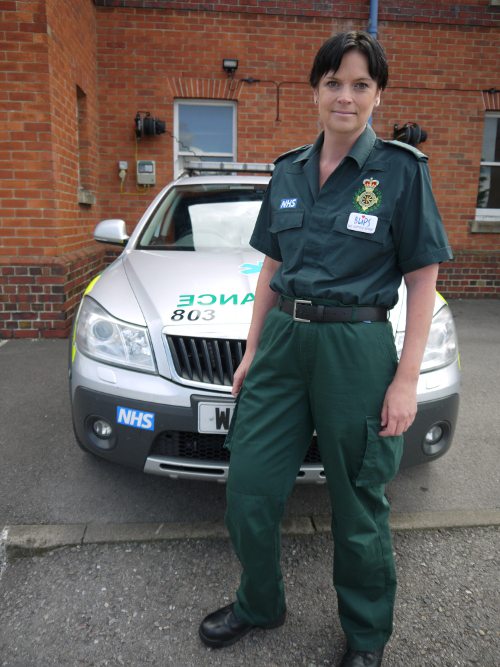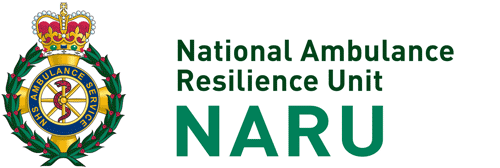A paramedic who had major shoulder surgery after being seriously injured whilst on frontline duties is to become the first member of the ambulance service to receive treatment under a pilot scheme for the physical rehabilitation of ambulance staff launched by a new UK charity.
 Kat Chignell, who lives in Somerset, has received a grant from TASC, The Ambulance Services Charity, to undergo rehabilitation at the Police Treatment Centre in Harrogate between Monday, September 7 and Friday, September 18 under a new scheme commissioned by the charity.
Kat Chignell, who lives in Somerset, has received a grant from TASC, The Ambulance Services Charity, to undergo rehabilitation at the Police Treatment Centre in Harrogate between Monday, September 7 and Friday, September 18 under a new scheme commissioned by the charity.
Kat was working as a paramedic for South Western Ambulance Service NHS Foundation Trust (SWASFT) when she was dispatched to a patient while on night shift on October 2014.
She said:
“I’m really grateful to TASC for organising this and for making a grant available for my rehabilitation treatment in Harrogate. It shows how much this charity is needed by the ambulance service community and we need to get behind them to give other ambulance staff these opportunities
When the incident happened, having released myself from the patient, I had instant pain in my shoulder. Having taken my own pain relief to no effect, I had to attend A&E, who gave me stronger pain relief and referred me to physiotherapy, which I started ten days later.”
After numerous months having physiotherapy and diagnostic scans, Kat had to undergo surgery in April 2015 to repair her labrum and to have her long head bicep released and fixed. Recovery has included four and a half weeks in a sling, physiotherapy and exercises. Kat added:
“I need intensive rehabilitation as after four-and-a-half months, I still haven’t got a full range of movement and I still have not regained my muscle tone or power in my shoulder. I have been seeing my NHS physio every two or three weeks and in addition I have paid for a weekly appointment with a private physio.
I am looking forward to getting back to frontline duties as a paramedic. When not at work, I compete in triathlons; however I have missed my whole season this year, along with my motorsports trackside season and I am looking forward to getting back to them both next year.”
Lorna Birse-Stewart, Chief Executive of TASC, said the pilot scheme aims to support the early intervention and rehabilitation of ambulance staff and that they are making grants of up to £1,500 available to enable up to 15 ambulance personnel to go to this and other centres where TASC has agreed commissioning arrangements.
“Kat’s need for treatment is really important and at the Police Treatment Centre there are a variety of services including physio, therapies and counselling available and we hope that our grant will help support her recovery.
On the last day at the centre, Kat will be given recommendations about what she needs to do next and we hope that she will be in a better position to be fit to return to work.
TASC understands that ambulance services frontline staff face significant challenges and pressures in the line of duty which can affect their own health and TASC is here to help.
This pilot scheme will, we hope, make a significant difference to Kat and other members of the service who we are able to help through the TASC rehabilitation pilot.
We would like to develop a much larger TASC ambulance service rehabilitation programme. To do this we really do need the whole ambulance services sector and the general public to get behind us, join up and support the work of the charity.”
Ken Wenman, the Chief Executive of South Western Ambulance Service NHS Foundation Trust, is fully supportive of the initiative and said:
“I am fully behind the principles of TASC and would encourage others to show their support. I wish Kat all the best with her treatment and look forward to charting the progression of the charity.”
For more details about the TASC rehabilitation pilot scheme, to read Kat’s rehabilitation diary and to find out more about joining and supporting the work of the charity, please visit www.theasc.org.uk
